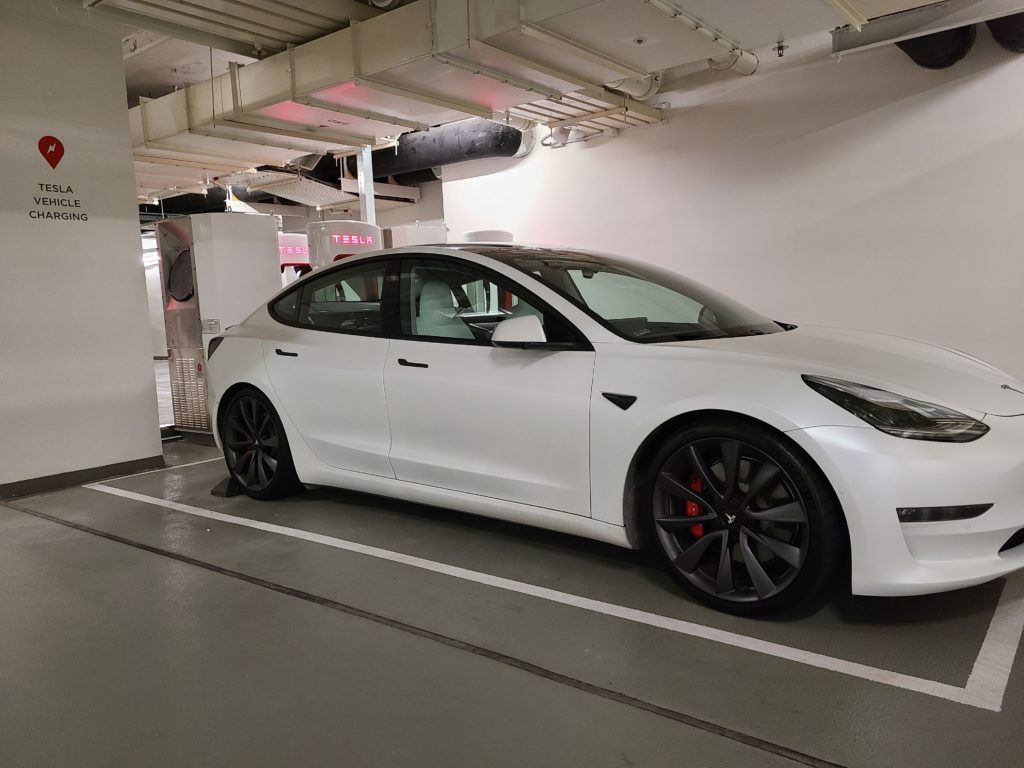
FREE. This is the short answer.
The government of Hong Kong is encouraging electric vehicles; therefore, offering subsidized installation of electric charging spots in commercial areas such as shopping malls and public parking areas. In turn, the two electricity providers in Hong Kong, CLP and Hong Kong Electrics are providing free of charge public charging to all electric vehicles in Hong Kong. All electricity providers in Hong Kong are government regulated. This scheme seems to be reviewed yearly but with full government backing of electric vehicles in Hong Kong, I suspect this scheme will continue for a period of time.
(Reference: USD$1 = HKD$7.76 / Euro€1 = HKD$9.25)
NOT FREE. The long answer below.
PARKING FEE
These public chargers are mostly located in shopping malls and commercial buildings with public parking. Unlike in the States, there are no free parking in Hong Kong. All shopping malls and commercial buildings have an hourly fee for parking. This generally ranges from HKD$15 to HKD$45 per hour depending on the location of the parking. Although, in most shopping malls in Hong Kong, there are parking redemption where if you spend a certain amount of money in the shopping mall, they will give you an hour or two free parking depending on how much you spend. Generally, it is HKD$150-HKD$300 for one or two hours free parking depending on the location of the shopping mall. There are also some government subsidized housing parking complex which gives free parking to all electric vehicles using their charging facilities. However, there are only a small number of these available.
The chargers in these public location ranges from slow charging at 11kW or lower to DC medium charging up to 20-25kW depending on location. If you want to learn more about charging speeds, please see my other blog post about charging speed.
Some parking lots in Hong Kong are also what you call Tesla Destination Charging locations. They will have Tesla Wall Connectors (Type 2) for Tesla use only with a maximum speed at 11kW or less usually. The use of the Tesla Wall Connectors are also free but you still have to pay for parking.
Therefore, say I am at a parking lot that costs HKD$30 an hour for parking with a DC medium 25kW charging average. It will cost me HKD$30 to charge 25kWH.
HOME CHARGING (Not free)
The above government scheme is only for commercial locations i.e. public shopping mall, public car parks etc.. When I got my Tesla in Hong Kong, Tesla Hong Kong will pay to install a Tesla Wall Connector at your home parking space for free with a 30m limit of cable length to your apartment complex power box. In Hong Kong, 99.9% of people live in apartment complexes. If you are lucky enough to have your own parking spot at your apartment complex and the building management allows you to install an electric vehicle charger at your parking spot then you are in luck. Still, your parking spot might not be feasible to install the charger. Nonetheless, if your building management allows you to install chargers and if the cabling is less than 30m then Tesla Hong Kong will install it free of charge for you including the Tesla Wall Connector for free. However, in some apartment complexes, they might charge you a one off management fee to install such a charger because all private chargers in housing apartment complex will require their own electric meter. Therefore, in some building, it is almost impossible or impractical to install a charger at your parking spot.
Home charging is not free. You need to pay regular electricity tariff like any residential building. Below is my recent electrical bill for my Tesla Wall Connector at my parking spot.
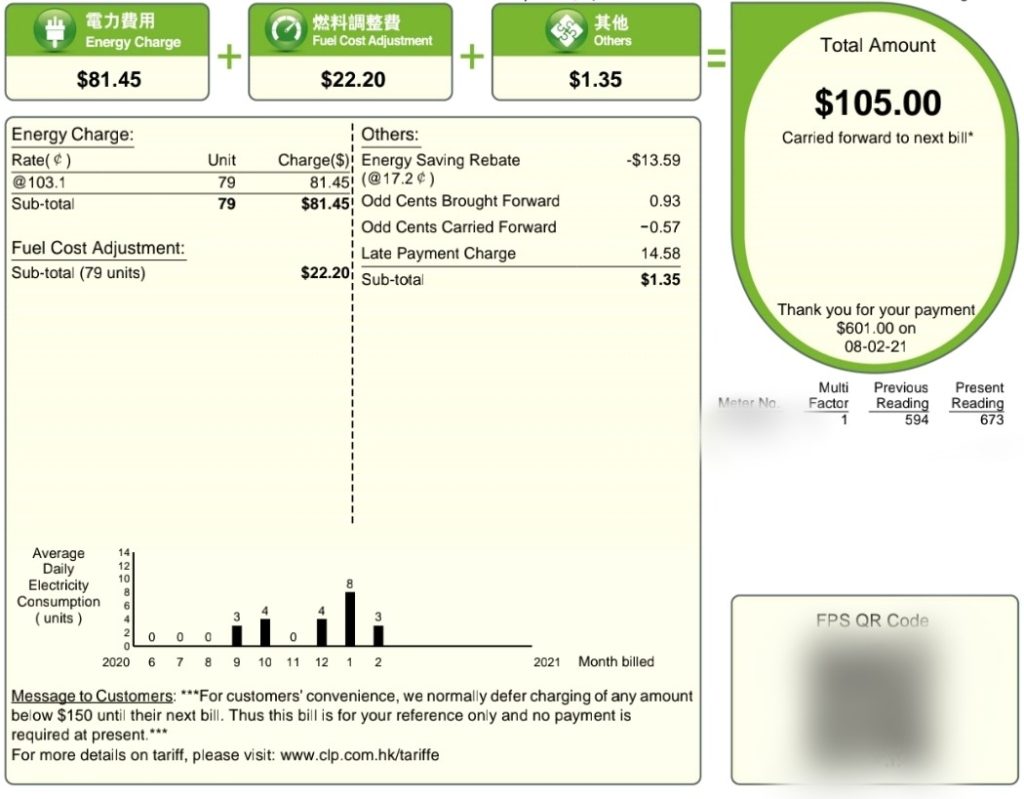
As you can see, one unit or one kWH is HKD103.1 CENTS. For simplicity, let’s say is HKD$1.03 for 1 kWH.
Take note this is a “non-residential tariff”. All electric charging spots irrespective of being in a residential parking or not will be charged the “non-residential tariff” which is fixed at HKD1.03 for 1kWH irrespective of usage.
For reference, the “residential tariff” is based on usage. It is HKD87CENTS each for the first 400kWH, HKD100.4CENTS each for the next 600KWH and HKD116.2CENTS for the next 800kWH until 4200kWH. Once over that you will be charged HKD181.5CENTS per kWH.
There is also a fuel cost adjustment which is a fee revised automatically on a monthly basis to take into account the difference between actual prices of fuels used and the forecasted fuel prices. For last month’s bill it is HKD28.1 CENTS.
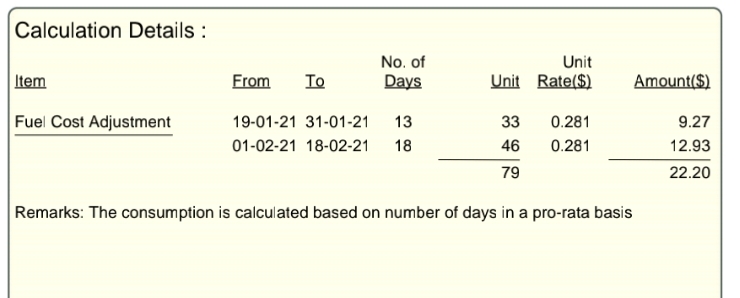
There is also a monthly rebate per KWH of total consumption if your usage is 400kWH or below.

Tesla Supercharger
Please read my Tesla Supercharging post for a more detailed look at Hong Kong Tesla Supercharging.
For a small city like Hong Kong, there are actually quite a number of supercharging stations spread across the region. The figure is around ~25+ Supercharger Stations, with ~150+ Superchargers. This figure is not current so there might be a few more. I will ask Tesla Hong Kong and try to get a current figure for 2021. There are also 3 v3 charging stations which gives a theoretically 250kW max charge vs the normal 119kW supercharging.
The fee is standard for all Tesla Supercharging stations including v3 at HKD$3.10 per kWh.
However, this fee is excluding the parking fee which is discussed above. All superchargers in Hong Kong are located in commercial parking complexes or shopping malls which charge you for an hourly parking fee.
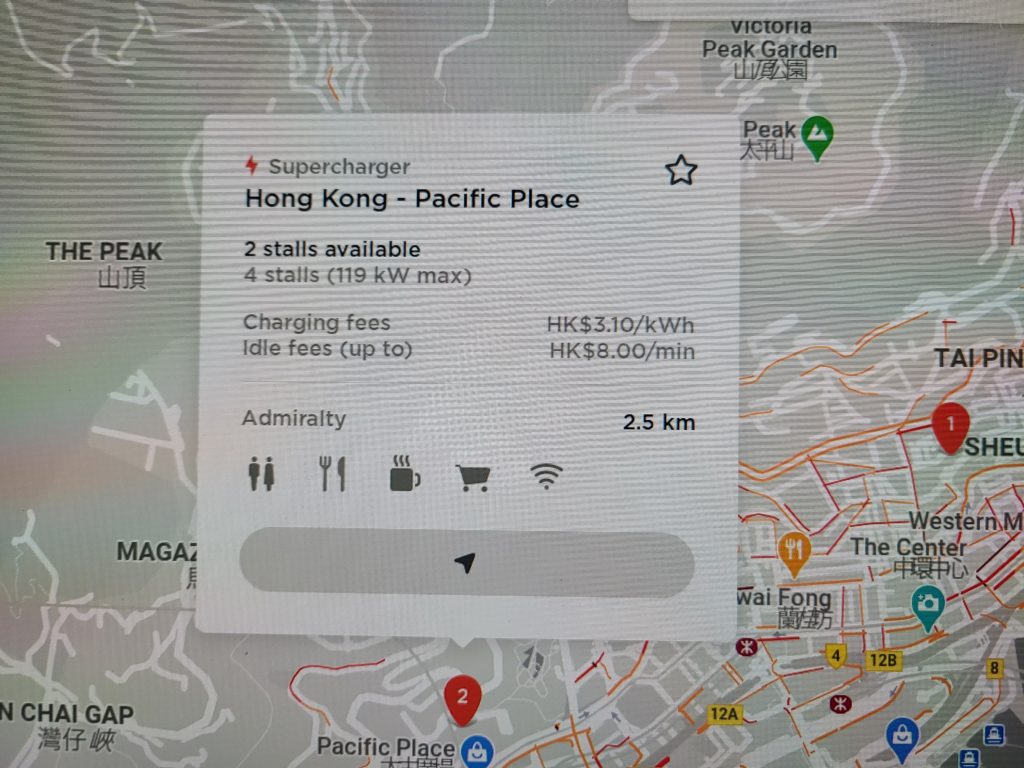
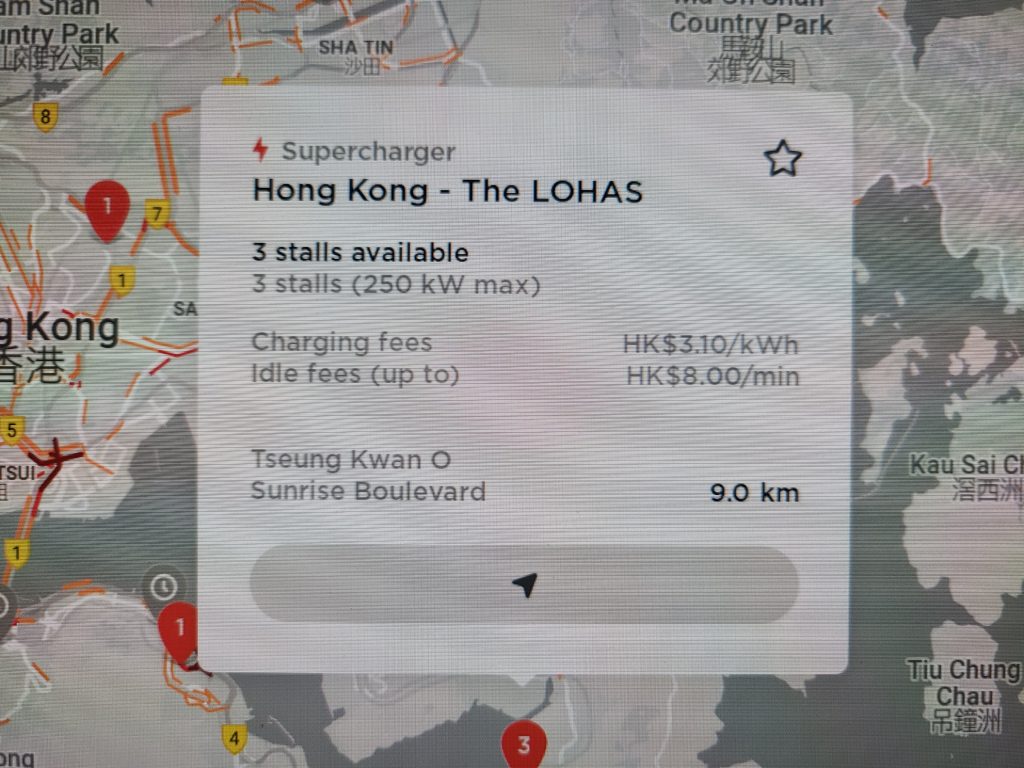
The idle fee is there to deter drivers from hogging the supercharging stations after the charging is complete. This is the explanation from Tesla. “If the car is moved within 5 minutes, the fee is waived. Idle fees only apply when a Supercharger station is at 50% capacity or more. Idle fees double when the station is at 100% capacity.” I suppose this means if the station is only at less than 50% then the charge will be HKD$4.00 per minute. If the station is at 100% then the charge will be HKD$8.00 per minute. This is actually quite relevant in Hong Kong as a lot of the supercharging stations are full or close to capacity at times.
So actually how much does it cost me to charge my Tesla?
This is quite interesting as I’ve actually ask a number of people do they know how much they pay for gas. Most people will tell me they pay around $XXXX dollar amount per month for gas. However, this doesn’t tell me anything. How much are they driving per month? 100KM? 1000KM? I am quite surprised to find that many people actually do not know how much in distance terms they drive per month.
If you do not know, then there will be no way to tell how much it will cost you to charge your Tesla.
I can tell you how much it costs to charge your Tesla 0-100% but that still doesn’t mean anything if you don’t know how much you drive.
Also, how you drive your car also determine how much energy you use. If you drive aggressively or if you drive conservatively just like a combustion engine car. Or you are driving a lot in the city vs. a lot on the highway.
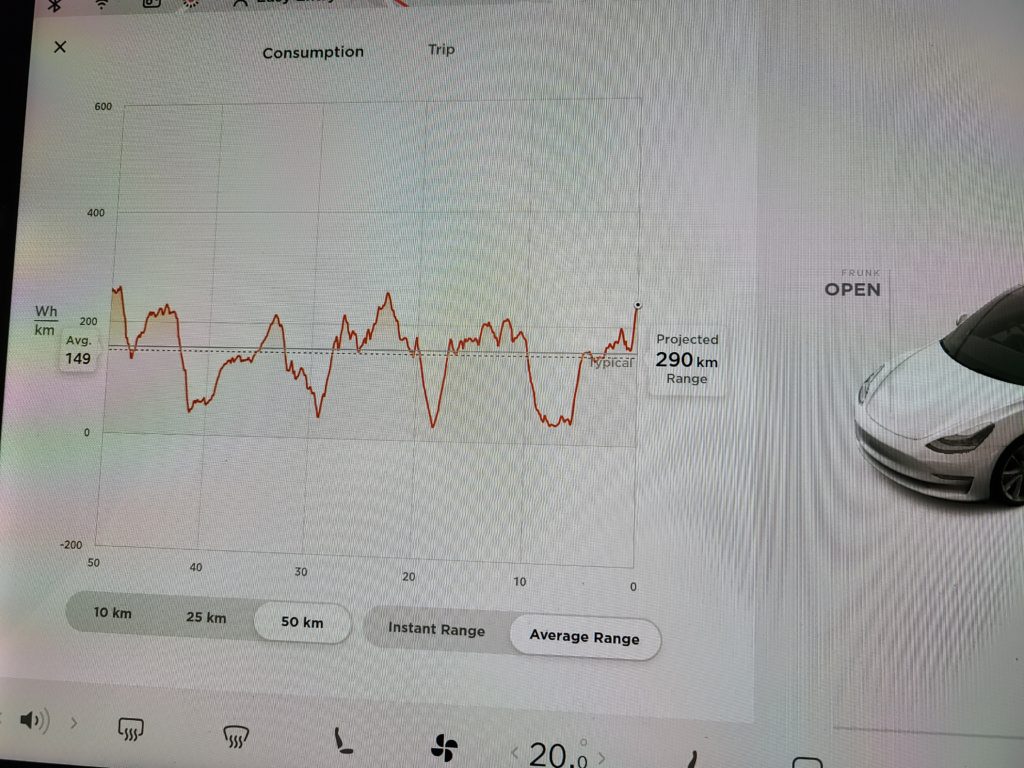
Let’s say you do know how much Km you drive and you want to know how much it cost per Km on a Tesla Model 3.
Let’s look at the numbers.
If I am charging at HOME, the electricity costs is HKD$1.03 for 1 kWH.
From the ENERGY page on the Tesla, I can see on average I am using 149Wh/KM.
Therefore, 149Wh = 0.149kWh per 1 KM.
So 0.149kWH x HKD$1.03 = HKD$0.153 per KM.
This might be different for you as you might drive more conservatively than me and get a better “mileage” than me. Also, I did not account for the rebate you might get depending on how much electricity you use per month and the monthly adjustment fee which varies a bit every month. Although, it is a small amount and with the above information, you can get a rough idea of the total costs if you are charging at home in Hong Kong.
Of course, you might get a better “mileage” than me and on average drives 120Wh/KM. It depends on how you drive and on the Tesla is great because it gives you a running average of the energy you are actually using on the ENERGY page.
If you are at a supercharger, then it is HKD$3.10 for 1 kWH. With the same “mileage”, so 0.149KWH x HKD$3.10 = HKD$0.462 per KM. Of course , this excludes the parking fee.
The next logical question to ask is how much saving does this give me compared to a combustion engine car using gasoline in Hong Kong? I will discuss this in the next blog post.

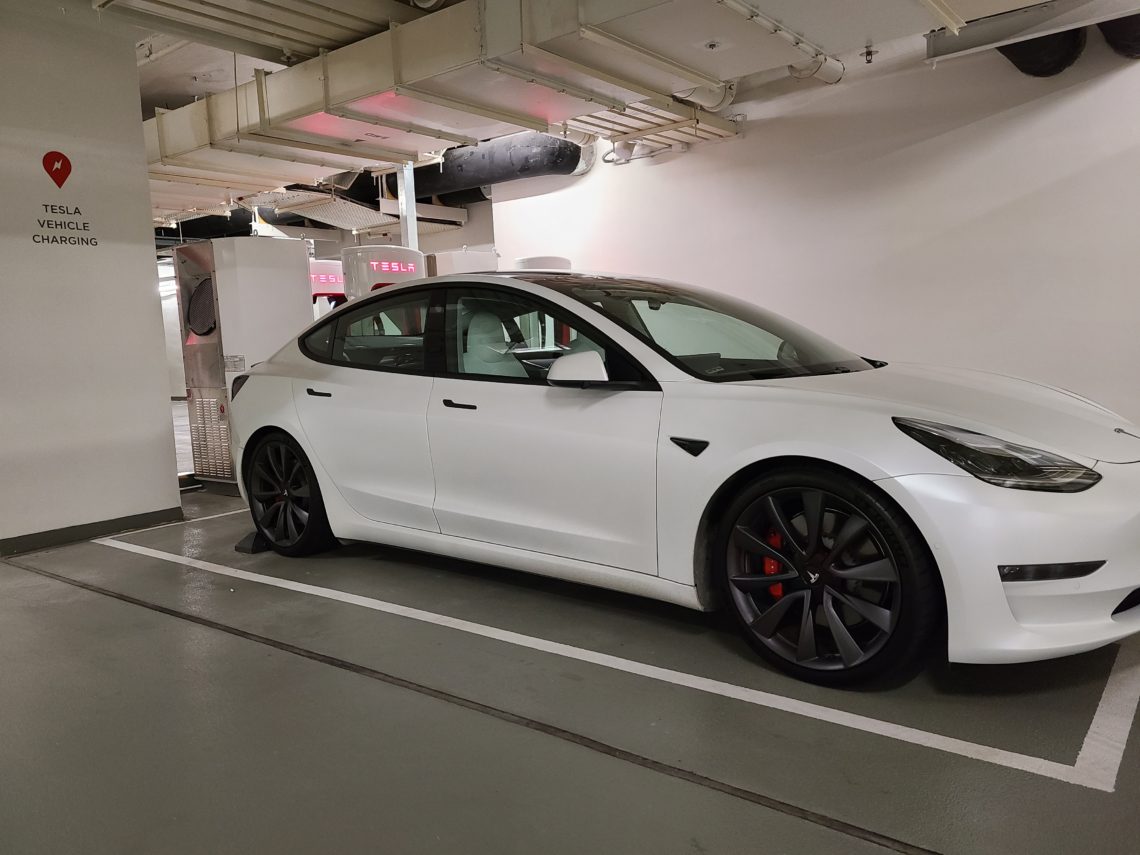

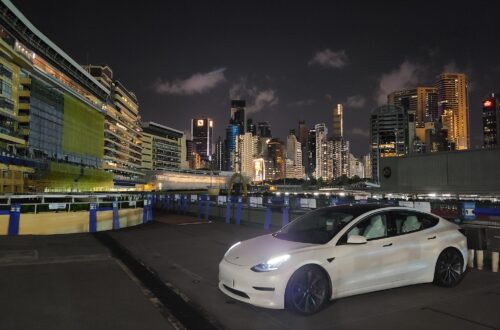
2 Comments
Ross
precise answer, thank you !
Calvin
Glad it helped!